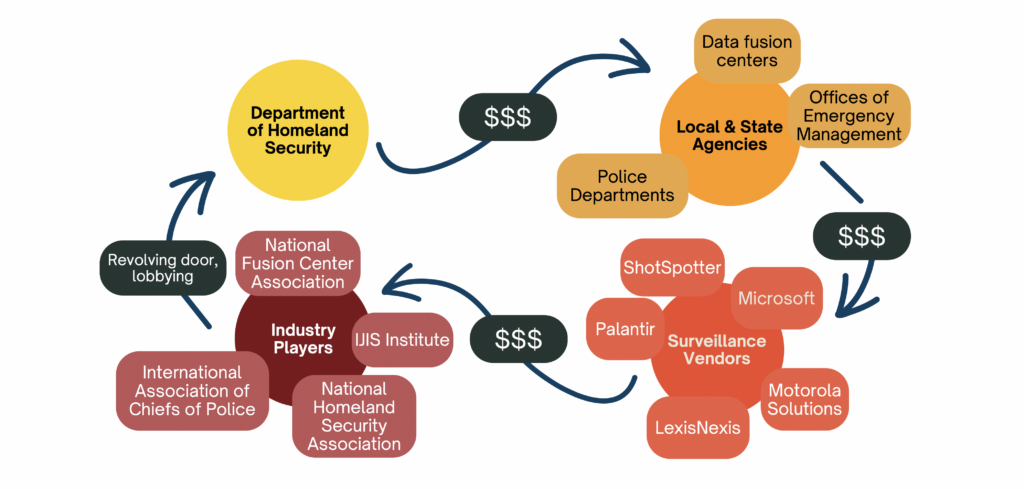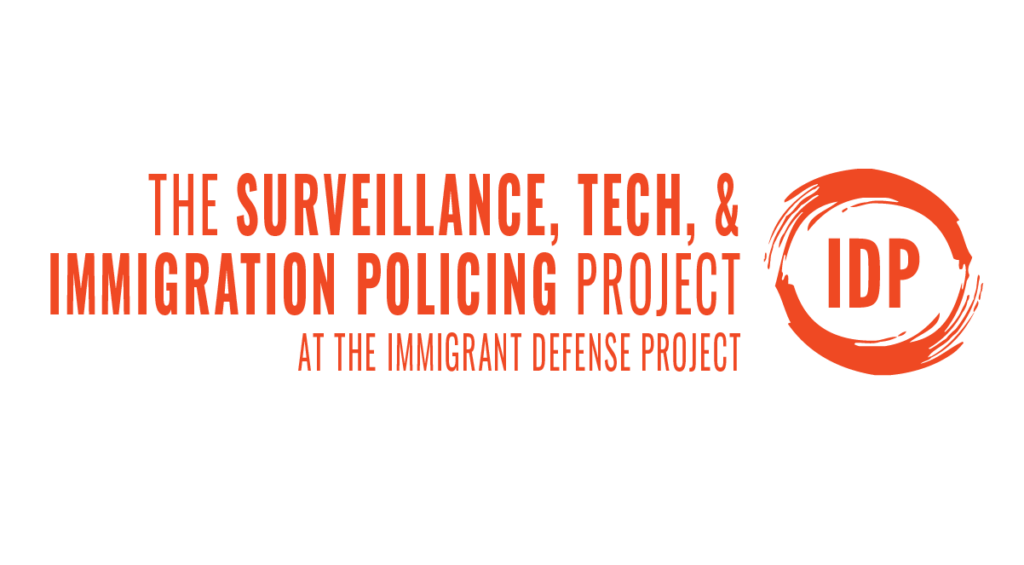DHS Open for Business: How Tech Corporations Bring the War on Terror to Our Neighborhoods
Executive Summary
In the aftermath of 9/11, the George W. Bush administration launched the global “War on Terror,” capitalizing on public fears and calls for retaliation to justify military intervention and Islamophobic violence across the world. This war demonized and targeted Muslims, both abroad and in the United States. In 2002, the administration founded the Department of Homeland Security (DHS), forcibly reframing federal immigration services, emergency response, and data analysis under a mission to “secure the homeland.” This reorganization codified the false link between immigration and terrorism. Instead of making people safe, DHS and its corporate partners used “counterterrorism” to expand policing and surveillance in neighborhoods across the country, targeting immigrant and Muslim communities and intensifying the War on Terror at our doorsteps.
Since its founding, DHS has relied on a state of “emergency” to carry out its operations. Twenty years later, this state of “emergency” has not ended and immigration policing, “national security,” and surveillance have become big business.
Our report investigates how DHS funding and corporations drive demand for “homeland security,” expanding militarized policing in our communities. Through our research, we found that DHS fueled a massive influx of money into surveillance and policing in our cities, under a banner of emergency response and counterterrorism—and with the support of its corporate partners like Microsoft, LexisNexis, ShotSpotter, Palantir, and Motorola Solutions.
Specifically, this report presents data on how DHS funneled billions in grant funding to our cities through programs like the Urban Area Security Initiative (UASI). We found that DHS and local policing agencies use this “counterterrorism” grant program to expand surveillance, supercharge militarized police departments, and funnel money right back to the same corporations that advocate for this funding. We focus our research findings on four cities—Los Angeles, Boston, New York City, and Chicago— documenting how UASI grants intensify local policing and benefit corporations. We spotlight data fusion centers—institutions that enable interagency information sharing and are heavily funded by UASI—as an example of how industry and government collaborate to build systems that criminalize Muslim, Black, Brown, Indigenous, and immigrant communities in our neighborhoods.

Is it safety or is it surveillance capitalism?
Take the quiz below to test your knowledge of the DHS and their “counterterrorism” practices.
Recommendations
Local & State Action
- To promote true community safety, city and state officials should reject Urban Area Security Initiative funding and instead invest in public services like education, housing, and healthcare.
- To protect their residents, city and state officials should divest all funding from fusion centers and other surveillance networks in local and state budgets and instead invest those funds in public services.
Federal Action
- Congress should immediately cut Homeland Security Grant Program (HSGP) funding by 50 percent and separate funding for emergency response and immigration services from the DHS budget, on the path to total divestment.
- Congress and federal agencies should limit and regulate corporate data sharing and ensure that “homeland security” and “policing” exceptions are no longer used as loopholes for corporations to profit from mass data collection.
Corporate Action
- Mass data collection and surveillance should not be profitable, and companies should not be able to make them an essential part of their business model. Corporations like Microsoft, LexisNexis, and Motorola Solutions should not profit off mass consumer data collection, information sharing, and surveillance.
- Corporations should withdraw funding and sponsorship from law enforcement associations and think tanks pushing “counterterrorism” policies that harm our communities. Corporations like Microsoft, LexisNexis, and Motorola Solutions shouldn’t be driving policies that fuel policing in our communities and make a profit from these contracts.
- Stakeholders of corporations like Microsoft, LexisNexis, and Motorola Solutions—including shareholders, workers, and consumers—can challenge the role these corporations play in exacerbating racist “homeland security” policy and sustaining the “counterterrorism” profit cycle.





